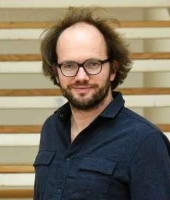Kai Koddenbrock
Kai Koddenbrock is a Senior Researcher in International Relations and Political Economy at the Goethe-University, Frankfurt. He is working on global hierarchies and Africa-EU relations with a particular focus on money and finance. His work has been published in journals such as the European Journal of International Relations, Globalizations, Journal of Cultural Economy.
His fellowship benefits from the support of the RFIEA+ LABEX, with a national funding (Grant ANR-11-LABX-0027-01).
Research Interests
West Africa, Longue durée of monetary and trade relations, Self-determination, Dependency, Financial markets.
The political economy of government bonds in West Africa Diversifying monetary and financial dependencies in the 21st century
All governments run into debt with banks to finance their spending programs, from schools, to roads and the military. Depending on their trustworthiness, they have to pay interest on this debt. Countries in West Africa have for a long time been seen as rather unattractive by banks and investors who want to generate profits by selling debt. This has changed since the 2007/2008 crisis. Banks and investors are now frantically scanning the earth for opportunities to make money through interest and fees. For this reason, countries like Senegal and Ivory Coast have been able over the last years to generate several billions of state expenditure by issuing government bonds and selling them to global banks like Citibank, UBS or BNP Paribas. With this, they have managed to circumvent the highly restrictive credit environment they are in because their economies are tied to the Euro through the Franc CFA currency, which has been in place since colonial times. Senegalese and Ivorian leaders have tried in different ways to increase their decision-making autonomy and these bonds are the most recent of them. The project will try to find out in what way this new kind of debt allows these countries to pursue their projects or how they may make them end up in the next debt trap.


